Africa
The #MeToo campaign has increased the confidence of women, mainly Western women, to report sexual and gender-based violence. But in Africa, the shame and blame on the victims has largely kept them silent.
In fiercely patriarchal societies, where religion and tradition define the role of women, simply reporting domestic violence is so difficult that it is not even considered to bring down men of power, as #MeToo has allowed.
While being confident but asking to remain anonymous, a 40-year-old psychologist living in Kenya told AFP that she was stunned when one of her former boyfriends slapped her in front of his family.
Their reaction was to say that he had a “boiling temperament”. Later, to her great surprise, five of her close friends told her that they had been abused by their companions.
She wondered how to “interact” with the #MeToo movement when such behaviours are considered normal and “we don’t talk about it”.
Like other African women interviewed by AFP, she believes that #MeToo has triggered more discussions on women’s rights and led to more sharing stories of sexual assault, but mostly in private.
“The reproaches are always addressed to the woman: it is her fault, the way she dresses, the way she talks, or you have to teach her a lesson because she is too strong,” the psychologist notes.
“It is not only men who think in this way, but also women,” she regrets.
“Proof of love?”
Nevertheless, in the year since #MeToo’s birth, there have been a few cases where women have refused to remain silent.
In March in Uganda, angry women used Twitter to call for the resignation of MP Onesmus Twinamasiko, who in a television interview had encouraged men to beat their wives to “punish” them.
“Yes, they need to be corrected a little, it’s even a proof of love,” he said. He then apologized, and his remarks had no consequences for him.
A government report published in Uganda in 2016 found that 20% of women aged 14 to 49 had been victims of physical or sexual violence in the past year.
When MP Sylvia Rwabwogo filed a complaint against a man who had harassed her for eight months, and who was sentenced in June to two years in prison, she was strongly criticised by Ugandans who expressed their sympathy for the “enamoured” student.
In recent months, however, there has been an increase in reported cases of abuse in universities in Uganda, Kenya, or Nigeria, where teachers have tried to force girls into sexual relations in exchange for higher grades.
In Uganda, this has resulted in several suspensions this year. In Sierra Leone, 71 people suspected of “bad practices” when assessing the results of the bac equivalent were arrested in September.
“Good marks”
A second-year student in Freetown explained to AFP, anonymously, that one of her science teachers had offered her “sex for a positive score” last year.
A report on the safety of girls and young women published this week by the NGO Plan International ranks four African capitals, Johannesburg, Kampala, Nairobi and Bamako, among the five cities in the world most at risk of sexual assault and rape.
Wangechi Wachira, who heads the Centre for Rights Education and Awareness (Creaw), a Kenyan women’s rights NGO, believes that while #MeToo talks to African women, many have been dissuaded from filing complaints by a justice system that is indifferent to their plight.
“The system as a whole that should support you is just trying to traumatise you even more,” she says, noting that in most workplaces there is no provision for dealing with complaints related to sexual harassment.
For Monica Godiva Akullo, a Ugandan lawyer and activist, the challenges faced by African women remain valid elsewhere as well, even though #MeToo was launched by “rich and famous women”.
She refers to the mockery made at a meeting by US President Donald Trump to the attention of Christine Blasey Ford, who is accusing Supreme Court candidate Judge Brett Kavanaugh of sexual assault.
“From Uganda to the United States, our societies still do not believe in women,” notes the lawyer.




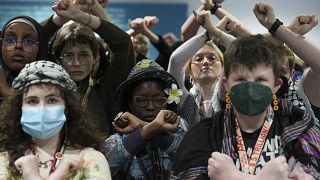
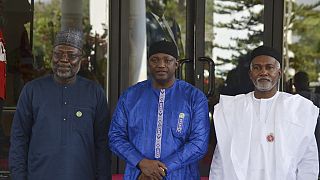
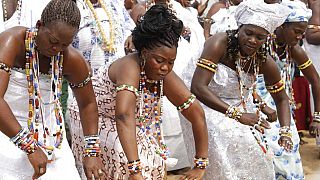
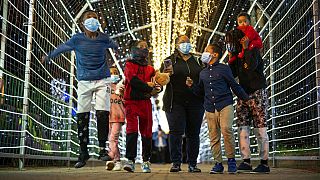
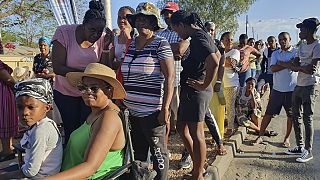
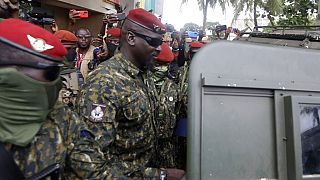
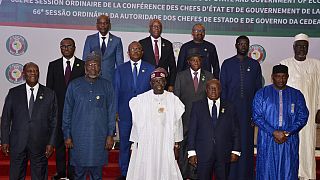
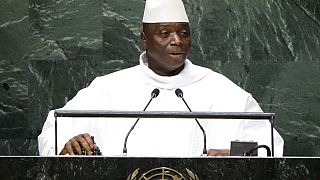
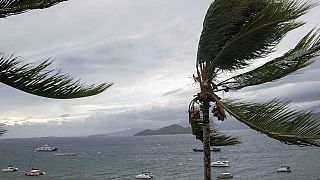
01:34
Workshops help Haitian women cope with trauma of ongoing gang violence
Go to video
Rwandan President Paul Kagame confirms bid to host Formula One race
01:51
Millions affected by unprecedented flooding in Chad, says UNFPA
01:16
António Guterres' vision for climate justice in Africa's G20 leadership
01:30
Protesters in Kenya demand action against femicide amid police crackdown
Go to video
Police in Kenya hurl teargas at protesters against gender-based violence